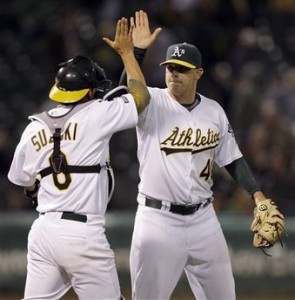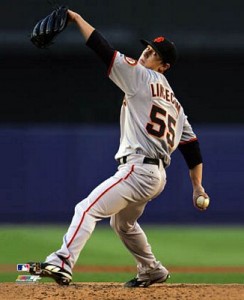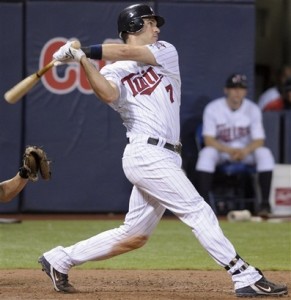By Jake McCormick
Only following one train of thought to the extreme in politics and life pulls you further towards the edge of reality. In the baseball world, the spectrum is divided with sabermetricians and Bill James on one side and traditional stat geeks with Ken Rosenthal on the other. Think of them as baseball’s tea parties and anti-war protests. Instead of act under the false assumption that a majority of people approve of either stat method wholeheartedly, I’m writing a three part series focused on both sides, then a combination of sabermetrics and traditional stats, in order to determine the best possible choices for MLB seasonal awards.
“Part I: Traditionalists tea party like there’s no tomorrow”
American League
MVP
Joe Mauer – Catcher, Minnesota Twins
.365 BA, 29 HR, 98 RBI, .444 OBP, .587 SLG
Mauer may not have put up video game numbers in home runs and RBIs like the three first basemen listed above, but he was the first catcher in the history of the MLB to lead a league in batting average, slugging percentage and on-base percentage. He still managed to post career highs in home runs and RBIs after missing the first month of the season. All the players above were catamites to their team’s success, but Mauer was surrounded by more no-names than a steak section of the grocery store and still managed to put up monster numbers.
Honorable mentions:
Mark Teixiera, 1B New York Yankees
Miguel Cabrera, 1B Detroit Tigers
Kendry Morales, 1B Los Angeles Angels
Cy Young
Zack Greinke – SP, Kansas City Royals
16-8, 2.16 ERA, 242 K, 1.07 WHIP, 6 CG
Unlike the MVP, the Cy Young typically doesn’t require a successful team for recognition. Greinke will be the poster boy for this philosophy when the final ballots are cast, as he led all leagues in ERA, was second in the AL in strikeouts, but finished seventh in wins on a bonafide Bad News Bears to which he was Tatum O’Neill. If Greinke were playing on any team other than the Royals, and I mean ANY team, he would’ve tallied at least 21 wins on the year.
Honorable mentions:
Felix Hernandez, SP, Seattle Mariners
CC Sabathia, SP, New York Yankees
Justin Verlander, SP, Detroit Tigers
Rookie of the Year

6-3, 83.1 IP, 26 Sv, 1.84 ERA, 91 K, .88 WHIP
This may be a bit unconventional as a Rookie of the Year choice because pitchers aren’t playing every day, whereas position players must continue stating their case throughout more than 100 games. Bailey is a closer on a bad team, but does the ROY award need to go to a player who hits below .270 on a similarly bad team? Bailey made the All-Star team, and anyone in the closer’s position does deal with the most pressure to record three outs. He was first in the AL in innings pitched and strikeouts from closers, was second in the league in closer ERA, and ninth in saves.
Honorable mentions:
Gordon Beckham, 3B, Chicago White Sox
Nolan Reimold, OF, Baltimore Orioles
Jeff Niemann, SP, Tampa Bay Rays
National League
MVP
Albert Pujols, 1B, St. Louis Cardinals
.327 BA, 47 HR, 135 RBI, .443 OBP, .658 SLG
This is the biggest no-brainer choice for an award since Gigli swept the Razzies. Pujols faded a bit throughout the second half of the year, but his slump is any normal player’s hot streak. Pujols finished third in batting average, first in on-base percentage, first in home runs, and third in RBIs. If you finish within the top three in the four major statistical categories of traditionally measured success, can you even consider anyone else? The Terminator followed up his 2008 MVP season with a sequel with more action and a much better ending.
Honorable mentions:
Prince Fielder, 1B, Milwaukee Brewers
Hanley Ramirez, SS, Florida Marlins
Ryan Howard, 1B, Philadelphia Phillies
Cy Young

15-7, 2.48 ERA, 261 K, 1.05 WHIP, 4 CG
My favorite pitcher that should be in line for his second straight Cy Young. He was tops in the NL in strikeouts, second in ERA, and fourth in WHIP. He led the league in complete games with four, and two of which were shutouts. Lincecum was the workhorse of a team that came in 13th in the league in runs scored, whereas the Cardinal twin dragons Chris Carpenter and Adam Wainwright had the benefits of a seventh ranked offense and the Terminator at the helm. Lincecum also came in third in innings pitched and had less “off” days than Charles Manson’s insanity.
Honorable mentions:
Chris Carpenter, SP, St. Louis Cardinals
Adam Wainwright, SP, St. Louis Cardinals
Javier Vasquez, SP, Atlanta Braves
Rookie of the Year
Chris Coghlan, OF, Florida Marlins
.321 BA, 162 H, 9 HR, 47 RBI, 31 Doubles, .390 OBP
Coghlan is the antithesis of the Andrew Bailey case, but can you really argue with 504 at-bats and a .321 batting average, both of which led all MLB rookies? He also led all rookies in on-base percentage and doubles, the second being achieved with half his games in a pitcher’s ballpark. Coghlan seemingly came out of nowhere, but having him batting in front of Hanley Ramirez should be scary for anyone. Being an unfortunate Milwaukee Brewer fan, I would’ve loved to give this award to Casey McGehee for his scorching second half performance, but his fluid-filled knee prevented him from raking consistently all year.
Honorable mentions:
JA Happ, SP, Philadelphia Phillies
Casey McGehee, 3B, Milwaukee Brewers
Tommy Hanson, SP, Atlanta Braves
